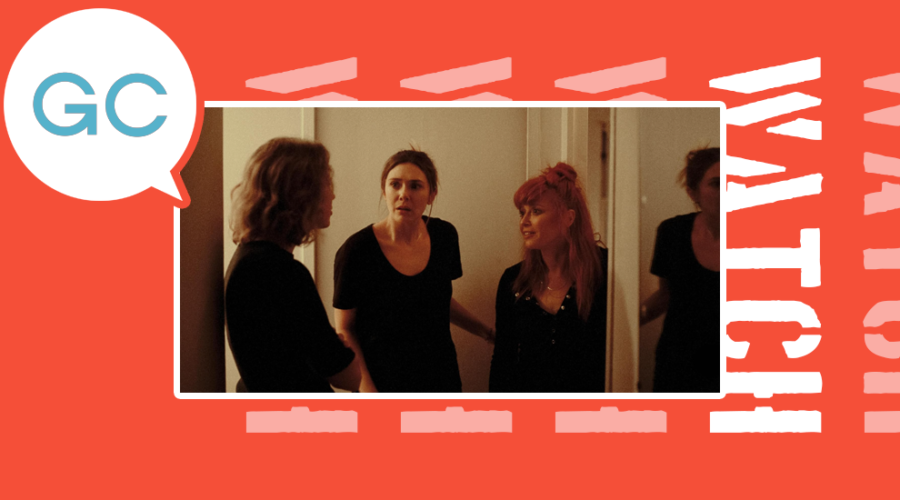Chamber pieces are films with a small cast and they are primarily set in a singular location, generally, with limited budgets. Often times those limitations can be felt in the repetitiveness of dull camera set-ups in the same two or three boring rooms.
It is a testament to director Azazel Jacobs, that His Three Daughters (2024) never looks boring. Although the film takes place almost entirely in a single New York apartment, the variety of camera set-ups showcase each room from different angles and create an impression that we are exploring the separate perspectives of each of the three titular daughters.
The apartment itself is a feat of precise, naturalistic production design. The space never feels stagey (fitting, as the film is based on Jacobs’ original screenplay and not adapted from theatre as one might expect). Furniture, appliances, decorations and the lack thereof all feel organic. We are watching these characters not on a set but in what was their childhood home.
The film stars Carrie Coon, Natasha Lyonne and Elizabeth Olsen as sisters who move into their childhood apartment to be with their father Vincent, who has entered hospice care at home.
A premise like this promises an actor showcase and His Three Daughters certainly delivers on that front.
The film begins with a well-written and even better delivered monologue from eldest daughter Katie (Carrie Coon) that sets the tone for the entire film. Characters will talk in paragraphs but those paragraphs will not be lacking in humour and irony. Coon continues her great work through the rest of the film. She injects Katie, a slightly stereotypical type-A eldest sister, with a humanity that makes her easy to watch even when her characterisation veers dangerously close to one-note territory.
The other leads are no slouches either. Natasha Lyonne plays Rachel with a palpable vulnerability that we have come to expect from her. From the outset, Lyonne communicates that the superficial semi-gruffness of the character is just the thin veil loosely thrown over a mountain of pain and fear. Rachel, who was adopted at a young age by Vincent when he married her mother, was living in the apartment with their father when he got sick. We watch her have to deal with being forced into the backseat in her own home while her previously absent sisters swoop in start making decisions.
Lyonne’s performance (and somewhat unnecessarily, Jacobs’ dialogue) tells us that Rachel feels like an outsider in the presence of her sisters, despite being the one who had been closest to their father for many years.
Elizabeth Olsen shines as youngest sister Katie. Often literally. The way her compellingly large eyes catch the light is performance enough yet she uses her entire body to elaborate on her character’s personality— a scene where she performs yoga stretches springs to mind. Olsen’s perfectly calibrated ameliorating smile and soft pauses form the arsenal Katie employs in her role as peacemaker in the apartment.
Other characters, along with the audience, are led to believe that Katie is a little ditzy but when the screenplay calls for it Olsen brings a steely stature to the character that belies the flexibility of her yoga poses.
The flaws the film has can be encapsulated in the one scene that Jay O. Sanders, who plays the girls’ father Vincent, gets to shine. His lengthy monologue in the film’s final act is revealed to be a moribund hallucination and the moment rings false. It would not have been better if this wasn’t a hallucination — but rather if Vincent’s final thoughts had truly gone unsaid. Because although the characters do not hear him say how happy he is to have all three of them there, the audience does.
Grief’s ambiguity comes from the fact that there is often no closure with death and it would have felt more in keeping with the story to maintain a consistency between what the sisters and audience knew. That we are aware of Vincent’s final thoughts muddies the moment.
This inclination towards obviousness extends throughout the entire film. People say a little more than they need to, metaphors are a little too literal and characterisation leaves very little room for surprise. His Three Daughters does a great job at telling us about its characters and their relationships but it might have been better served if it had a little more trust in us to figure it out.

